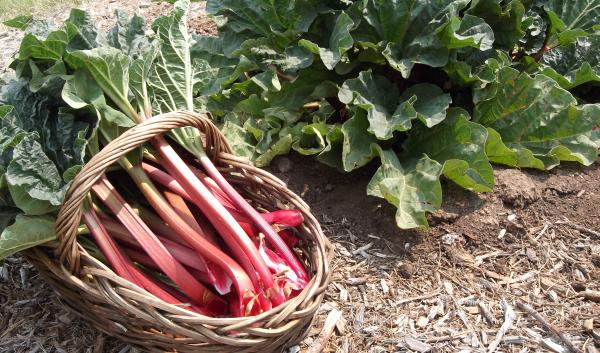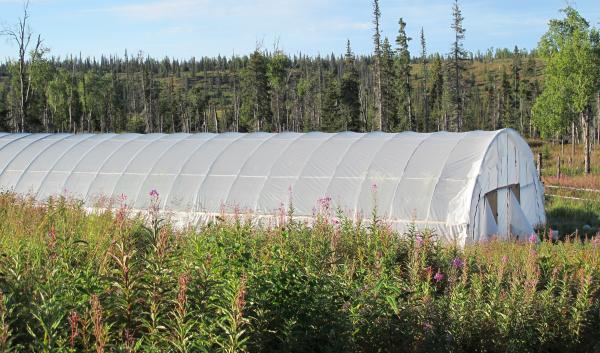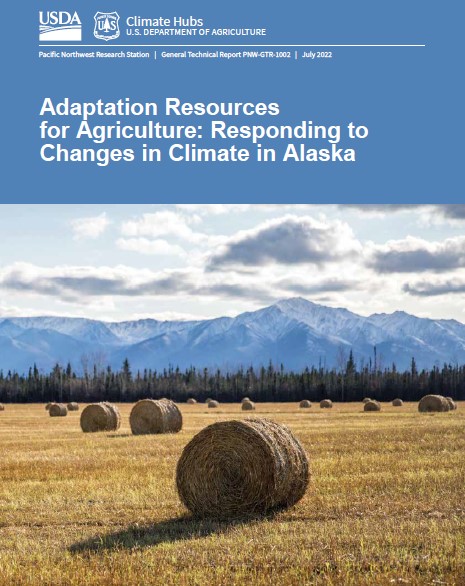Alaska is at the forefront of climate change. With increases in temperatures, agriculture in Alaska could see more opportunities for production. Climate change will also bring challenges, such as increased risk of invasive species, pests, and diseases. With these opportunities and challenges, farmers and ranchers can implement different adaptation strategies to reduce negative impacts and promote positive effects of climate change on their operations.
Adaptation Resources for Agriculture: Responding to Changes in Climate in Alaska is a workbook that reviews climate change effects on agriculture in Alaska and provides information to help producers adapt their operations. Technology transfer specialists and producers can use this workbook to consider different strategies to increase resilience to weather extremes, improve soil health, and address climate-related challenges. The workbook provides a flexible, structured, and self-guided process for individual agricultural producers to define management goals and objectives, assess site-specific climate change impacts and vulnerabilities, identify adaptation approaches and tactics for implementation, and monitor and evaluate the effectiveness of implemented actions on their land. For more information and detailed instructions on how to use the adaptation workbook, see the Pacific Northwest Research Station SciCast Webinar: Adaptation Resources for Agriculture - Responding to Changes in Climate in Alaska.
Alaska Garden Helper lets users explore local growing conditions now and with future climate change, by considering growing degree days, annual minimum temperatures, and length of the growing season, as well as plant hardiness zone maps.
Soil Management and Composting in Alaska includes on-farm soil management and composting tips to enhance soil quality and resilience.
Soil Preparation: soil testing, soil building, soil quality provides helpful information for Alaska farmers on how to take a good soil sample, where to send it for testing, where to access soil amendments, and more.
University of Alaska-Fairbanks Extension Integrated Pest Management Program provides information on an alternative approach to chemical-based pest management with minimal impact on water, soil, and human health.
National Weather Service Alaska-Pacific River Forecast Center provides information and forecasts on rivers and water supply.
Pollinator Gardens in Alaska is a short guide to planting and maintaining a pollinator garden to increase presence and potential benefits to crop fields and gardens.
USDA Programs and Resources to Assist with Adaptation to Climate Change is a searchable guide with over 140 USDA programs and resources that provide financial or technical assistance, insurance, or services to assist with adaptation and mitigation of climate change.
Toolbox for Farmland Seekers from Alaska Farmland Trust includes information on lease agreements, how to develop a farm business plan, how to acquire financial assistance, and labor resources.
Explore Case Studies from the Adaptation Workbook
The workbook also includes case studies of agricultural producers in Alaska that used information in the Adaptation Workbook (chapter 4) to implement climate adaptation actions on their farms.
-
Bushes Bunches Produce Stand

-
Ridgeway Farms in Kenai, AK






